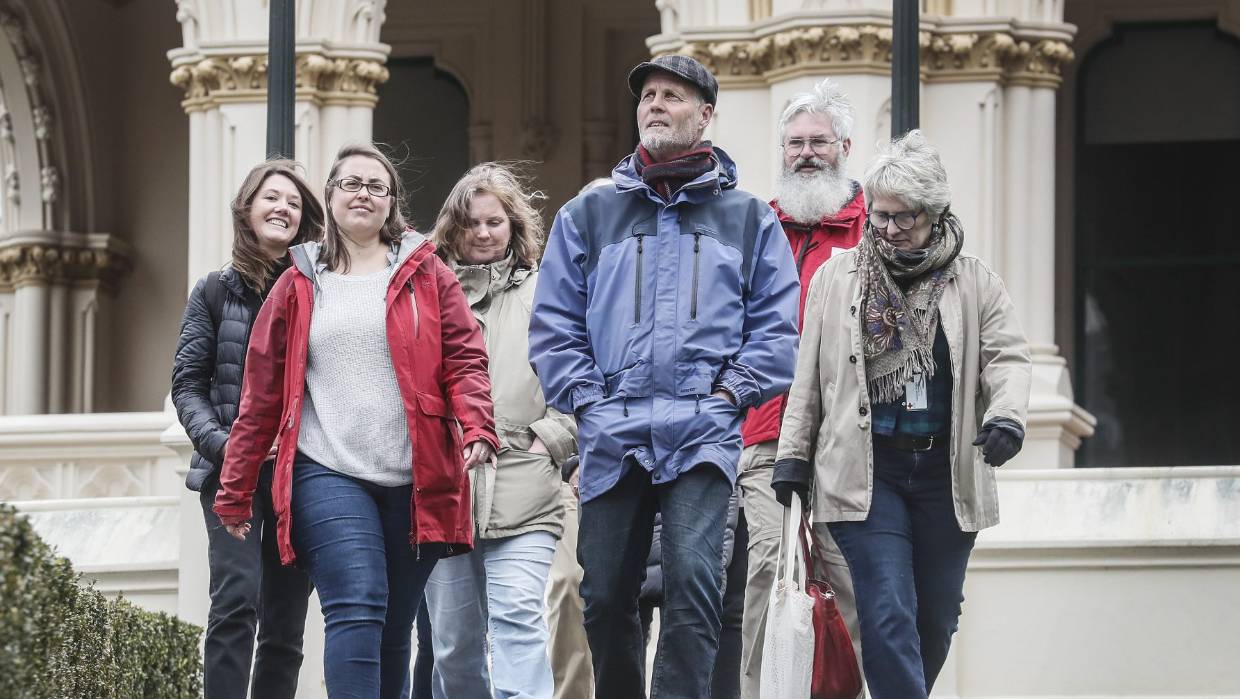Every Friday, a small group of people gather on Parliament’s steps, walking along Christchurch streets to remember the 51 Muslims who lost their lives in March-15 terrorist attacks, Stuff reported.
Gathering on Parliament’s steps, then walking to the corner of Bowen St, down Whitmore St and on to the waterfront; walking alongside the waves, they head for Te Papa.
Once they’re there, they bow their heads for 51 seconds of silence: one for every victim of the Christchurch mosque shootings on March 15.
“People come along because they believe in being a welcoming country, a welcoming community,” walker Peter Scott said.
“For myself, it’s sending that important message which was said a lot after Christchurch: This is not who we are.”
The walks started on March 22 this year and will run for 51 weeks – one week for every victim.

Peter Scott (centre) leads the Walk of Remembrance group on their regular Friday walk to remember the victims of the Christchurch mosque shootings. (KEVIN STENT/STUFF)
At the end of each walk, during which they carry a banner reading “Walk of Remember”, people are invited to share their thoughts and reflections.
Keeping Memories Alive
This week’s walk, planned next Friday, is the 26th out of planned 51 walks.
Walker Jenny Woodley Higgins has been coming along since it started and said a lot of the people walking wanted to keep alive the memories of the victims and their families.
“Everyone was really shocked after the event and we got to talk about ourselves as a nation,” she said.
“We were talking about all these things but for some people, they’ve forgotten that first feeling.”
Terrorist Brenton Harrison Tarrant killed 51 Muslim worshippers in March-15 attacks as he targeted Al Noor and Linwood mosques.
Islam in New Zealand is adhered by about 1% of the total population. Small numbers of Muslim immigrants from South Asia and Eastern Europe settled in New Zealand from the early 1900s until the 1960s.
Large-scale Muslim immigration began in the 1970s with the arrival of Fiji Indians, followed in the 1990s by refugees from various war-torn countries. The first Islamic center opened in 1959 and there are now several mosques and two Islamic schools.